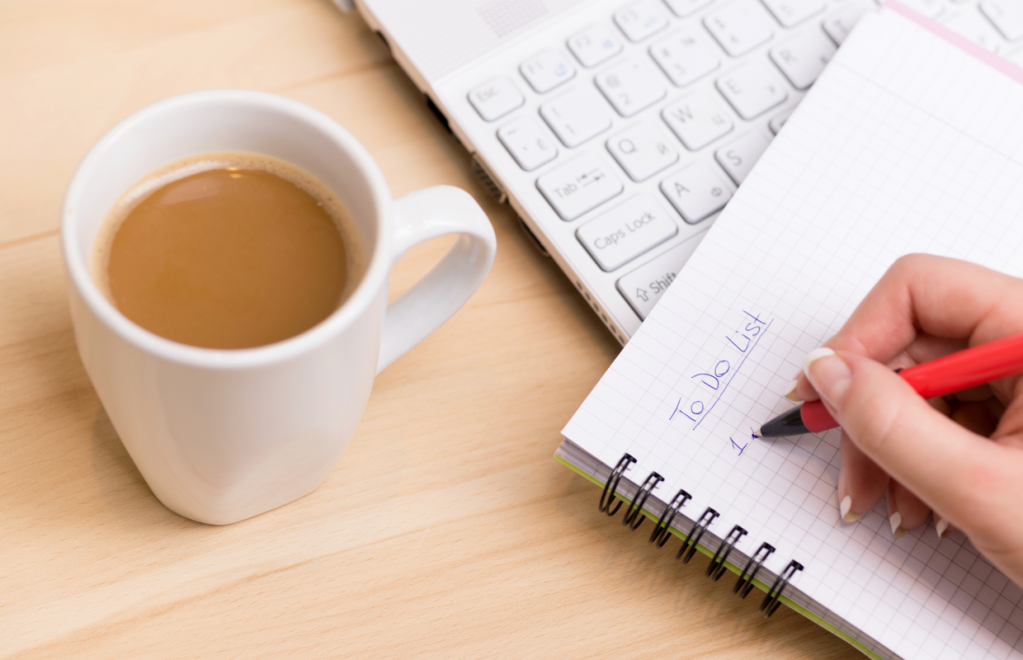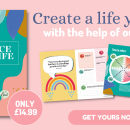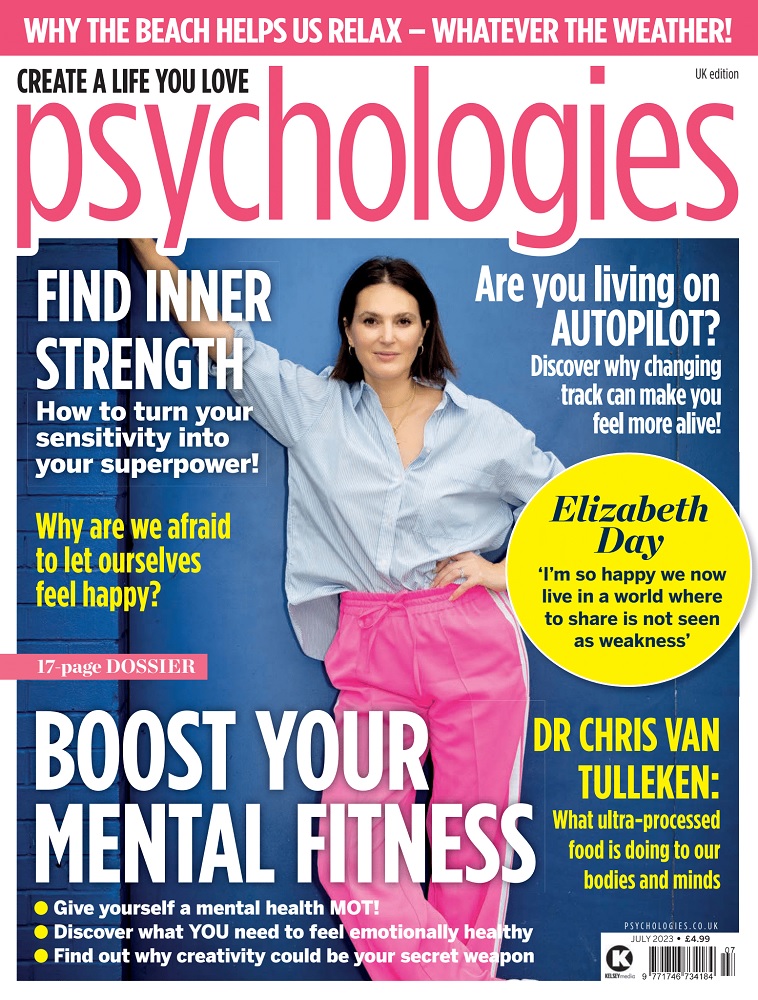Emotional exhaustion: 5 strategies to beat fatigue
After events of the past few years, it's no wonder many of us are feeling overwhelmed. Palena Neale explores the symptoms of emotional exhaustion before sharing some top tips on overcoming fatigue...

Many of us are feeling depleted after the challenges of the past few years. Travel and personal restrictions, isolation, homeworking and homeschooling, not to mention worries about our health and that of loved ones, relationships, work and money. A lot of people I talk to are operating below par, but haven’t put a name to the problem. In fact, it’s emotional exhaustion.
What is emotional exhaustion?
One source defines emotional exhaustion as ‘a chronic state of physical and emotional depletion that results from excessive demands and continuous hassles’. It describes ‘feelings of being emotionally overextended and exhausted – manifested by both physical fatigue and a sense of feeling psychologically and emotionally drained.
What are the symptoms of emotional exhaustion?
The symptoms of emotional exhaustion are different for everyone but, for me, I find that I have less bandwidth, less capacity to take on other people’s problems or even talk for long. Sometimes, I feel like retreating even further into isolation.
Take the following five steps to replenish yourself following emotional exhaustion and cope with what comes next…
5 ways to beat fatigue and overcome emotional exhaustion
How do you keep going when you are struggling with emotional exhaustion? Palena Neale offers five strategies to help you support yourself, your team and your family. Used long-term, these should help replenish depleted resources…

1. Check and top up your energy
I use a quick energy audit to keep track of my energy patterns and identify opportunities for change. Here is a simple exercise:
- – Draw a circle.
- – Divide it into eight segments.
- – Identify important areas in your life where you want to invest energy (work, family, school, partner…) and label one segment for each area.
- – Give yourself a score for each segment on a scale of 0-10, with 0 meaning ‘I have nothing in the tank’ and 10 meaning ‘I am full of energy’.
Next, ask yourself:
- – What does this audit reveal? Are there any patterns?
- – Are there any areas I can set aside and come back to at a later date?
- – Where do I have high energy? What strategies have I used successfully in this area?
- – Can I apply these strategies to any of the other areas in which I would like to increase my energy?
- – What other or new energy sources or resources can I think of?
This exercise is not about judging yourself, it is a temperature check to determine what you can set aside for the moment, what you can capitalise on, and which new sources of energy, or external resources, you can identify as you move forward.
One of my clients identified ‘helping my children with homework’ as a high priority area where she had low energy – which produced a lot of guilt. By exploring alternative sources of energy, she was able to identify a neighbour – a widower and retired teacher – whom she could call on for support. This allowed her to get assistance, support her kids and provide purposeful activity and social connection for her neighbour.
2. Remind yourself that you are doing your best
It’s crucial to take stock of your accomplishments and celebrate your successes for greater resilience and to avoid emotional exhaustion.
Ask yourself:
- – What are my top three personal successes during the pandemic?
- – What are my top three work successes?
- – How have I celebrated these? Or how am I going to celebrate them?
You can use this technique with family and colleagues. Celebrating successes and praising efforts will create and spread uplifting feelings. When you are feeling positive, the neurotransmitter dopamine enhances learning, motivation and attention.

3. Think about your own needs to avoid emotional exhaustion
Like a lot of people, I find it hard to ask for help because I am empathising too much with others. My thinking will be ‘I know how busy X is, so I can’t possibly ask her to do this’, or ‘Y’s children are young and he’s not getting a lot of sleep these days, so I don’t want to ask him’.
There are benefits to empathy, but it can deplete your mental resources, which can lead to burnout. What you want is sustainable empathy.
Ask yourself:
- – How can you and your family or colleagues share the load – including the emotional load?
- – What stops you asking for help? Could you set those reasons aside and ask anyway, to support your family or team more fully?
- – If asking for help was a superpower to empower others, how would you use it differently?
‘COVID felt like the straw that broke the camel’s back,’ said a client, who had been demonstrating almost superhuman levels of empathy towards her husband and kids and had stopped asking for help around the house.
On reflection, she saw that she was deciding for them what they could or couldn’t do, which was neither helpful for her nor empowering for them. By exploring the bounds of her empathy, as well as its power to enable and disenable, she identified specific situations in which she could call on her family to practise shared empathy.
4. Avoid the ‘I just need to work harder’ trap
After months of exceptional conditions, a ‘just work harder’ strategy could be self-defeating. Trying to mobilise energy, motivation and engagement by telling yourself ‘I’m just not trying hard enough’, or thinking you can ‘fix’ energy lags through willpower alone, is futile. It also closes you off from seeking other strategies. While it might feel uncomfortable and counterintuitive, an effective strategy is to pull back and slow down.
Try this instead:
- – Take regular breaks in your day. Go for a short walk, listen to a podcast, read for 10 minutes or listen to a song that lifts your mood.
- – Integrate play into your weekend. If you have children, play with them. Get immersed in the activity: dolls, Play-Doh or crafts – be absorbed.
- – Integrate some adult play into your leisure hours, whatever that means for you. A creative pastime is good, but the important thing is that it is completely unrelated to tasks or surroundings that feel like work, so you can give your mind a rest and emerge refreshed and re-energised.

5. Rework your to-do and not-to-do list
If you are exhausted, saying no and meaning it is more important than ever. But it can be difficult to let go of the feeling that you need to do everything, especially if you are stressed. Here is an exercise I use when I recognise that I am acting this way. Add an extra column to your to-do list – the ‘not-to-do’ column. Review items on your to-list and identify which tasks you choose not to do today. Move them to the ‘not-to-do’ column.
Ask yourself:
- – Is this activity essential to achieving my big goals for today?
- – Who else could do this?
- – What is the worst that could happen if I strike this off my list for today?
By taking a more critical view of your to-do list, you consciously manage your time and energy. Items my clients have moved to their ‘not-to-do’ list include: Doing my son’s homework; attending an extra yoga class; sending a reminder to my PA to make sure she schedules a meeting; rechecking a report so it’s ‘perfect’. While many of these activities can feel important, none are essential to your daily goals and can be moved.
Staying one step ahead of emotional exhaustion…
We have made it through the past few years, and even though restrictions have finally eased and we are learning to live with Covid-19, life is still full of difficulties and concerning events, which can make it easy to feel overwhelmed.
To avoid emotional exhaustion, we need to find a way to support our families, teams, communities and ourselves. Start now. Grab a pen and jot down your successes, then make a plan to celebrate them, go for a walk or listen to your favourite song as you consciously manage your energy and fill up your tank for the months to come.
Palena Neale is the founder of unabridged, a leadership coaching and mentoring practice that helps women access their power and potential for greater personal, professional and social impact. Visit unabridgedleadership.com or @PalenaNeale on Twitter.
Images: Shutterstock






